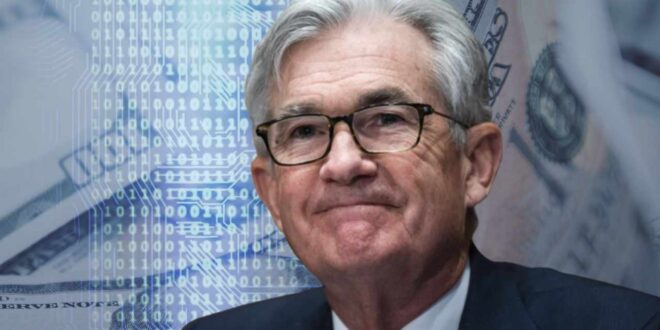Fed Chair Jerome Powell: Central Bank Has Minimal Influence Over Bitcoin Holdings
Introduction
Jerome Powell, the Chairman of the Federal Reserve, recently made it clear that the U.S. central bank’s influence over Bitcoin and other cryptocurrencies is limited. In his latest statement, Powell emphasized the Fed’s hands-off approach to the digital asset space, suggesting that its policies and actions have little impact on the accumulation and value of Bitcoin. This article explores what Powell’s comments mean for both investors and the broader cryptocurrency market.
1. Powell’s Statement on Bitcoin Influence
During his remarks, Powell underscored that the Federal Reserve’s mandate and tools are primarily focused on traditional financial systems, such as banking and monetary policy. He noted that while the Fed monitors the growth and development of cryptocurrencies, it does not have the same levers to control their supply and demand as it does for traditional assets. Powell acknowledged that cryptocurrencies like Bitcoin operate in a different financial ecosystem, largely detached from central bank intervention.
2. The Role of Market Forces
Powell highlighted that the price and adoption of Bitcoin are driven by market forces, investor sentiment, and demand from retail and institutional buyers. Unlike traditional currencies or financial instruments, Bitcoin’s value is not controlled by a central authority. Powell’s comments reinforce the idea that Bitcoin and similar cryptocurrencies are decentralized, relying on blockchain technology rather than traditional economic policies for stability and value.
3. Implications for Investors and the Market
For investors and the broader cryptocurrency market, Powell’s remarks emphasize the importance of understanding the limited influence of monetary policy on digital assets. This can impact how individuals and institutions approach Bitcoin in their portfolios, particularly in terms of risk management and investment strategy. The Fed’s lack of control over Bitcoin suggests that its price movements will continue to be influenced by factors such as technological developments, regulatory changes, and global economic trends rather than domestic monetary policy.
4. Market Reactions
The market’s reaction to Powell’s comments was mixed. While some investors interpreted his remarks as a signal of regulatory stability, suggesting that Bitcoin’s role in the financial ecosystem may continue to expand without significant Fed intervention, others were concerned about the potential for volatility. The crypto market has historically been sensitive to news from regulators and policymakers, and Powell’s statement did little to calm those fears completely.
5. The Future of Central Bank Interaction with Crypto
As cryptocurrencies become more integrated into the global financial system, discussions around the role of central banks are likely to continue. Powell’s comments reflect a cautious approach from the Fed, recognizing the complexity of the crypto market and the need for a balanced regulatory framework. While Powell noted the Fed’s interest in the space, he also suggested that the central bank would take a wait-and-see approach, monitoring developments without taking direct action.
Conclusion
Jerome Powell’s statement that the Fed has minimal influence over Bitcoin holdings marks a significant clarification in the ongoing discourse around the role of central banks in the digital asset space. As cryptocurrencies mature and their influence on the global economy grows, it remains to be seen how regulators will respond. For now, Powell’s message serves as a reminder to investors that Bitcoin’s fate lies largely in the hands of market participants and broader economic factors, rather than central bank policies.
 Business Sandesh Indian Newspaper | Articles | Opinion Pieces | Research Studies | Findings & News | Sandesh News
Business Sandesh Indian Newspaper | Articles | Opinion Pieces | Research Studies | Findings & News | Sandesh News



